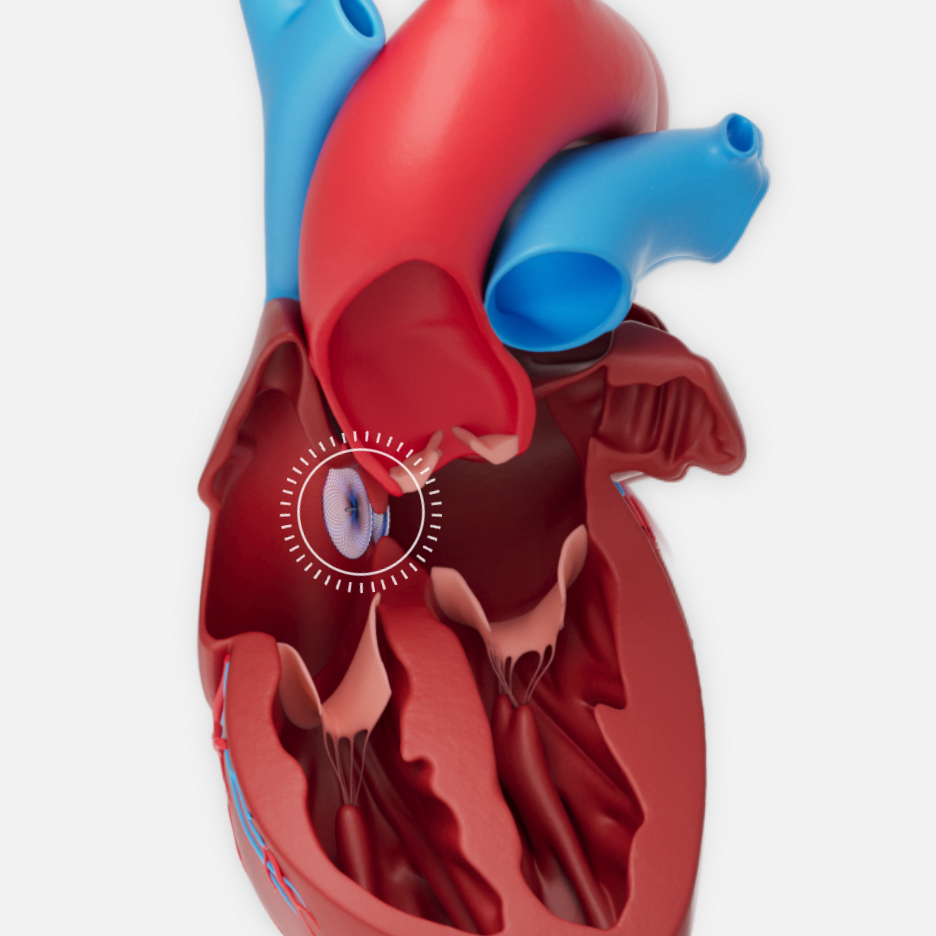ATRIAL SEPTAL DEFECT
An atrial septal defect (ASD) is a hole in the wall between the two upper chambers of the heart (atria). This opening causes abnormal blood flow between the two atria, which usually causes excessive blood flow to the lungs and may result in heart failure. Atrial septal defects are one of the most common congenital heart defects in pediatric cardiology and are often associated with other heart conditions or malformations.
ASD occurs in approximately 1 in 1.500 births and accounts for approximately 30 - 40 % of all congenital heart disease seen in adults as it can be unrecognized for decades.
WHAT ARE THE SYMPTOMS OF AN ASD?
Severity of symptoms often depends on the size of the hole. Large ASDs may cause fatigue, shortness of breath, pulmonary hypertension, arrhythmia and/or an enlarged heart.

HOW IS AN ASD TREATED?
There are several treatment options for an ASD, and there is no single option that is right for every patient. The first option is medication that may be used in treating symptoms associated with the ASD. Another treatment option is an open-heart surgery. The third option is a minimally invasive catheter-based procedure where an occluder is inserted through a small incision in the groin and guided through vessels to the heart, where it is placed to seal the defect.


